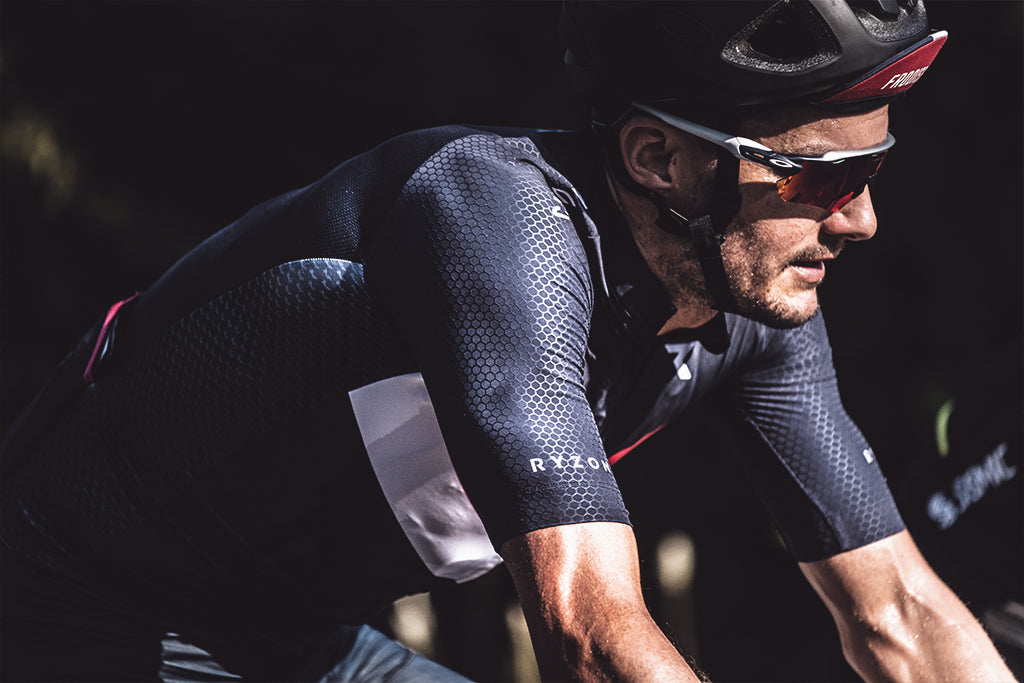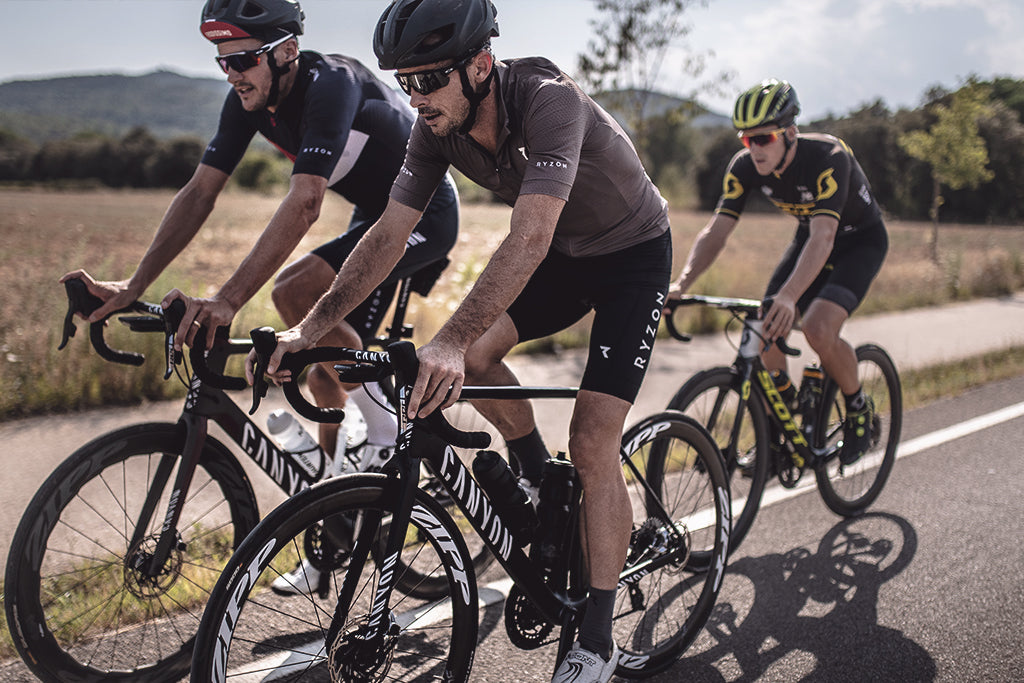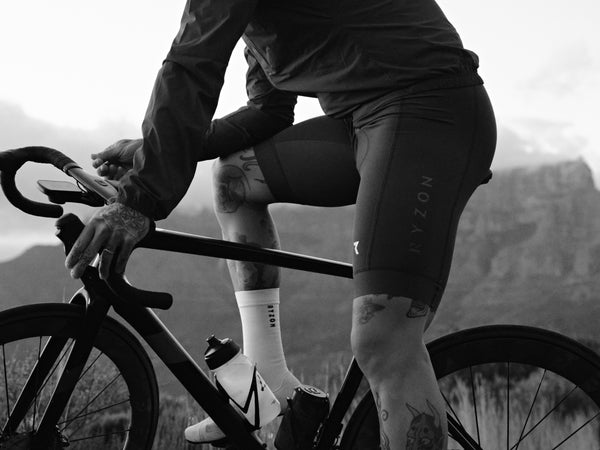Your own rhythm. The feeling of being in harmony with your own body. Being honest with yourself creates mental strength. Every competition with all its ups and downs challenges the spirit. It is the art of listening within that allows the athlete to build mental strength.
“The rhythm and the feeling for your own body is crucial.”
How important is the balance between mental and physical strength? What influence does the training group have on your own well-being? How do you deal with ups and downs in competition? Regarding the 70.3 Ironman in Poland, Jan shares the importance of physical fitness in harmony with the spirit and gives further insights into the preparations for the upcoming competition.

Your highlight so far this season was the Ironman European Championship in Frankfurt. You were able to defend your title there under extreme conditions. Did you win the race in your head?
Jan Frodeno (JF): Every Ironman challenges the mind enormously, in addition to the obvious physical exertion. The race in Frankfurt challenged me both mentally and physically. drama on all sides. Tactics. Fight, man against man. A race that will be remembered forever. But these competitions are exactly why I continue to do this sport. If I'm still at the top after such an eventful day, that's of course even better.
The Ironman Frankfurt showed once again that in addition to the physical condition, the mental form also plays a major role. How would you weight these two factors?
JF: Difficult to say. An unfit body doesn't win races, nor does it if the mind doesn't play along. If the head is flat, a fit body doesn't win a flower pot either. So it should be balanced.
How do you prepare for extreme situations in the race so that you can make the best possible decisions?
JF: I know before I start that the downs are coming. The only question is how to deal with it. It is important not to let the lows upset you or lose your nerve due to setbacks. For example, when I went horseback riding in botany at the Ironman in Frankfurt, where I lost my food. Of course, you shouldn't want too much when things are going too well for you. It's all a matter of experience and patience on such a long day.
How do you feel about the loneliness during long training sessions or during a race?
JF: I'm rarely alone in training. I usually train with my training partners and when not, I also enjoy the peace and nature around me. Training everything alone would not be for me. In competition it is clear that you are on your own, but I never feel lonely there. There's always something going on around you.

To what extent does your inner rhythm also play a role, in addition to the measuring devices and data?
JF: The rhythm and the feeling for your own body are super important in the race. That's why I train day in and day out. In contrast to training, I don't wear a heart rate monitor during competitions. I'm sure that I could do a decent competition without a bike computer or a watch, but it gives me a certain security to pace myself correctly and to act correctly in the ups and downs.
A competition also requires a lot of mental energy. How long is the regeneration phase to be estimated?
JF: Much longer than physical regeneration. After a strenuous Ironman, it can happen that after a week I still can't really follow conversations because I drift off quickly. The body, on the other hand, recovers much faster.
What is the proportion of mental training?
JF: I don't do classic mental training. My mental training is the daily physical training. I've learned a lot myself over the years and practice this in my daily training.
Do you discuss this with your long-time training partner Nick Kastelein?
JF: I talk to Nick about all sorts of things. About mental as well as about physical aspects. But of course also about trivial nonsense or the latest gossip. We're side by side for hours. But it is also important that you can talk, but you don't have to. It's also okay if someone doesn't feel like talking.

To what extent do you benefit from the routine within your training group?
JF: I think we all benefit from our group. It makes us all stronger and while it sounds weird, we try not to let it become routine. Variety is the be-all and end-all.
How important are you to each other?
JF: I'm definitely the "old hand" to beat. If I'm having a bad day, the guys let me feel it right away.
"Mental strength is being honest with yourself."
Do you have a tip on how athletes can create a mental balance?
JF: If you're really honest with yourself, you're definitely your own best mental coach. But being honest with yourself is the real challenge.
On the way to Hawaii you have two races ahead of you - Gdynia and in Allgäu. Why exactly these two races?
JF: Both races fit very well into the planning of the Kona preparation and of course I want to do it. Although Poland is to be taken more seriously than the Allgäu Triathlon. Allgäu is only "for fun".
In Poland you will start together with Nick Kastelein. Are you preparing together as usual? Or would that affect your focus?
JF: As always, we do everything together until departure. Everyone does their thing on site, as each competition routine is very individual. In the race everyone fights for themselves.
How do you manage to switch off after training? Are there conscious times when you block out everything else? If yes, how do you spend this time?
JF: After big races I usually take a few days off and vacation with the family. At this time I don't train according to a training plan, I just do what I feel like doing. This has a lot to do with food or coffee.
Finally: The Allgäu Triathlon falls on your birthday. Will your family and friends be there? How does that make it special for you or are you way too focused anyway?
JF: Unfortunately, my family won't be there, it would be too stressful for such a short stay. But in addition to Nick, my training partner Nan Oliveras is also at the start. And as always, my physio and my manager. We will spend the evening together and treat ourselves to a bottle of wine in addition to good food.

